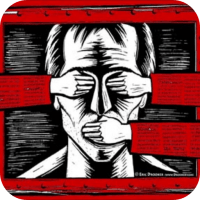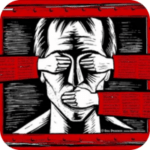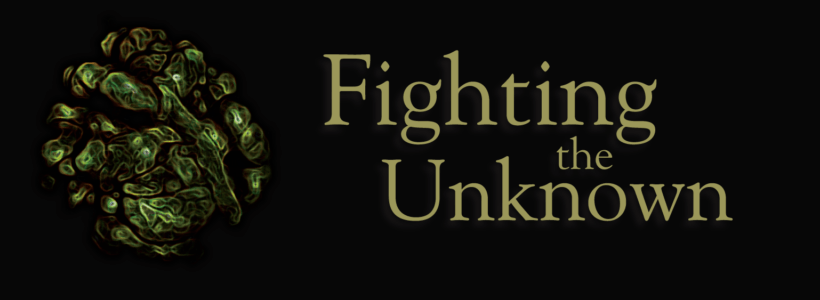Last Updated 02/08/2025 published 02/08/2025 by Hans Smedema
Page Content
FAQ: The Hans Smedema Affair: State Capture and Justice Denied
Frequently Asked Questions: The Hans Smedema Affair
1. What are the core allegations made by Hans Smedema and his wife, Wies Jansma?
Hans Smedema and his wife, Wies Jansma, allege a decades-long, deeply entrenched conspiracy and cover-up by the Dutch state, including high-ranking officials, medical professionals, judicial authorities, and potentially the Royal House. The central claims revolve around Wies being secretly drugged and sexually abused, becoming a “sex slave” with dissociative identity and amnesia, starting in 1972. Hans Smedema also claims to have been illegally sterilized in 1972, and that Wies bore three children from different rapists, with paternity falsified through manipulated DNA tests. Both Hans and Wies allegedly suffered from severe repression and memory loss due to drugging, preventing them from recalling the traumas.
The alleged abuse reportedly continued for years, with Wies being “used for making films” and “made available to others for money.” Smedema claims he was secretly administered powerful antipsychotic medication, disguised as “baby aspirin,” since 2003, and subjected to “secretly forced criminal electroshock torture” in Spain in 2008 and 2010. The core theme is an alleged state-orchestrated cover-up to protect perpetrators and ensure impunity, systematically obstructing justice, denying legal aid, manipulating evidence, and providing false information to international courts.
2. How has the Dutch state allegedly obstructed justice and denied Smedema access to remedies?
Smedema alleges a systematic and comprehensive denial of justice within the Netherlands. Key methods of obstruction include:
- Refusal of official investigations: Police and public prosecutors allegedly refused to file formal charges or conduct investigations, deeming Smedema’s claims “unbelievable,” despite naming perpetrators and witnesses. This was purportedly due to a “special Royal ruling” or “State Security” concerns.
- Denial of legal representation: Smedema claims he has been systematically denied legal aid since 2000, with hundreds of lawyers refusing his case, some allegedly “forbidden from taking the case” due to “unlawful interference” or fear of state security implications. This has left him without effective legal defense in critical court cases, where he was allegedly sentenced without a lawyer present.
- Manipulation and suppression of evidence: Crucial evidence, such as the “Frankfurt Dossier” (a secret intelligence file), was allegedly “erased within three days” of its discovery around 1983. Other evidence, including DNA tests and MRI scans, was purportedly falsified, and medical files manipulated, to conceal the truth. Witnesses and family members were allegedly compelled to lie or deny events.
- “Gaslighting” and psychological manipulation: Smedema describes being deliberately portrayed as “insane,” “delusional,” or “paranoid” by family, friends, and medical professionals, causing immense psychological suffering and isolating him. This “reality manipulation” was allegedly a calculated tactic to discredit his claims and prevent him from seeking help.
- Exploitation of legal procedures: The Dutch government is accused of using legal technicalities and loopholes to dismiss Smedema’s complaints, even providing false information to international bodies like the European Court of Human Rights, claiming he failed to exhaust domestic remedies that were, in fact, systematically denied.
3. What role do high-ranking officials and the Royal House allegedly play in this affair?
Smedema explicitly claims that high-ranking officials within the Dutch Ministry of Justice, including former Secretary-General Joris Demmink, are central figures in orchestrating and maintaining the cover-up. He alleges Demmink’s involvement in a “pedophile network” and the manipulation of justice to ensure impunity for himself and others. The narrative also implicates the Dutch Royal House, specifically Queen Juliana and Queen Beatrix, and later King Willem-Alexander, in approving or being aware of a “secret Royal Special Decree” or “ruling” that allegedly facilitated the cover-up and protected perpetrators.
This alleged high-level involvement explains the “extraordinary resilience of the alleged criminal enterprise and the failure of accountability,” as powerful figures allegedly “neutralized all domestic legal and oversight mechanisms for such an extended period.” The implication is that the Royal House, along with ministers and a “corrupt Ministerraad,” actively engaged in “malicious unethical behavior” to conceal crimes and protect individuals, even influencing international legal processes.
4. How have international bodies responded to Smedema’s attempts to seek justice?
Smedema has attempted to seek redress through various international channels, facing consistent hurdles:
- US Asylum: His multiple asylum applications in the United States (2009, 2013/14, 2016/17) were allegedly “blocked by Dutch influence.” Despite FBI/CIA investigations reportedly confirming aspects of his claims and Judge Rex J. Ford finding “5 good grounds for asylum” in 2009 (a “unique” occurrence), asylum was ultimately denied. Smedema claims that in 2017, King Willem-Alexander, acting as co-pilot, allegedly lied to US authorities, claiming Smedema did not want asylum, leading to his deportation.
- European Court of Human Rights (ECHR): His 2006 ECHR complaint was rejected on the grounds of “failure to satisfy the requirements mentioned in Articles 34 and 35 of the Treaty,” specifically “not enough legal done inside the Netherlands!” Smedema argues this rejection was based on false information, as the alleged state obstruction made exhausting domestic remedies impossible.
- UN Committee Against Torture (UNCAT): Smedema states that the Netherlands has “refused for 24 years to use the UNCAT rules for investigation,” despite it being a state obligation. He believes a UNCAT case against the Netherlands was initiated by President Obama in January 2017. Smedema highlights that UNCAT rules explicitly place the burden of investigation on the state, making the Dutch government’s failure to investigate a violation of international law.
- European Parliament: A petition to the European Parliament in June 2021 was deemed “inadmissible” due to “incoherent reasoning with an unclear link to the Union’s fields of activity,” which Smedema attributes to the systemic obstruction preventing him from coherently presenting his case.
5. What is “state capture” and how does Smedema’s case relate to it?
“State capture” is a form of systemic political corruption where private interests significantly influence a state’s decision-making processes for their own benefit. It involves political actors infiltrating state structures through clientelist networks to conceal corrupt activities and exploit state resources. Unlike typical corruption, state capture aims to shape laws and policies to favor specific private agendas.
Smedema’s case directly aligns with the concept of state capture. He alleges that a “secret Omerta organisation” led by his brother, manipulated by figures like Joris Demmink (a former Secretary-General of the Ministry of Justice), infiltrated the Dutch state apparatus to orchestrate the cover-up. This alleged infiltration extended to law enforcement, the judiciary, and intelligence services, neutralizing domestic oversight and legal mechanisms. The reported involvement of the Royal House and the alleged “Royal Special Decree” further suggest a deeply embedded network that operates above the law, using state mechanisms to protect itself and conceal severe crimes. Such systemic corruption, particularly within a Ministry of Justice, fundamentally undermines the rule of law and the principle of mutual trust essential for EU cooperation.
6. What broader issues with the Dutch justice and administrative system are highlighted by Smedema’s allegations?
Smedema’s claims, supported by broader reports, point to significant systemic deficiencies within the Dutch justice and administrative system:
- Weak accountability and oversight: Reports from bodies like GRECO and the EU Rule of Law Report suggest slow progress in implementing anti-corruption recommendations, particularly regarding transparency and integrity at top executive levels. Academic analyses highlight that the Netherlands performs “relatively poorly” in horizontal accountability, with issues identified by audit bodies taking years to translate into policy changes due to “political interference.”
- Maladministration and lack of citizen protection: The “Toeslagenaffaire” (Childcare Benefits Scandal), documented in “Blind voor mens en recht,” reveals how flawed legislation, coupled with a focus on fraud detection over citizen protection, led to severe maladministration, disproportionately affecting vulnerable groups. The report notes “serious shortcomings in providing legal protection,” including legislative restrictions, insufficient attention to the consequences of decisions, and judges ignoring “distressing cases.”
- Procedural barriers: Smedema’s experience mirrors issues in the broader Dutch system where citizens face “stressful delays,” refusal of information, and challenges in formalizing complaints. The National Ombudsman’s refusal to investigate Smedema’s claims, citing jurisdictional limits, despite internal intelligence suggesting a “cover-up and conspiracy,” points to “systemic flaws” where complex human rights violations fall through “jurisdictional cracks.”
- Impact on fundamental rights: The alleged denial of legal aid, fair trial, and effective remedies directly contravenes core EU and ECHR principles, including Article 47 of the Charter of Fundamental Rights and Article 6 ECHR. The systematic use of risk profiling in fraud detection has also led to “unequal treatment and violation of respect for private life,” with biases against certain ethnic or social groups.
7. Why have Smedema’s allegations been largely ignored by the Dutch media and public?
Smedema expresses profound frustration with the lack of media coverage and public awareness of his case, alleging that media outlets are either “complicit in the cover-up” or “afraid to report on a story that implicates powerful figures.” This alleged media suppression allows the purported crimes to continue unchecked and contributes to a “culture of fear and silence.”
The broader “Blind voor mens en recht” report indirectly sheds light on this phenomenon, noting how media and politics can mutually reinforce narratives, sometimes to the detriment of nuanced public understanding. In the context of the “Bulgarian fraud” and “Polish fraud” scandals, media amplified calls for stricter fraud policies, influencing parliamentary action and potentially creating an environment where complex individual cases, especially those implicating high-level state actors, are dismissed or ignored due to public perception or official denials. The report also acknowledges that “good persistent investigative journalism can be invaluable,” implying its scarcity in addressing deeply entrenched systemic issues.
8. What is the potential legal basis for EU intervention in a case like Hans Smedema’s?
The EU has mechanisms to address systemic breaches of its core values, particularly the rule of law and fundamental rights. For the European Commission to intervene in a case like Smedema’s, it would need to demonstrate how the alleged systemic obstruction by Dutch authorities constitutes a failure to correctly implement specific EU law:
- Rule of Law (Article 2 TEU): The systemic manipulation of justice, abuse of power, interference with judicial independence, active obstruction of justice, and fostering of impunity, as alleged, fundamentally contradict the principle of the rule of law.
- Effective Remedy and Fair Trial (Article 19 TEU, Article 47 CFR, Article 6 ECHR): The systematic denial of legal aid, blocking of investigations, and alleged manipulation of court processes directly deny an effective remedy and access to an independent tribunal, as guaranteed by these articles.
- Anti-Corruption Legal Frameworks: Systemic corruption within a Ministry of Justice, leading to obstruction of justice, contravenes EU anti-corruption efforts, which view corruption as a threat to the rule of law. A new EU Directive on combating corruption by criminal law is being developed to strengthen this framework.
- EU Financial Interests and Mutual Trust (Rule of Law Conditionality Regulation): A Ministry of Justice allegedly compromised by systemic corruption could be deemed incapable of effectively combating fraud against the EU budget (PIF Directive, Article 325 TFEU). If a “sufficiently direct link” between the alleged corruption and a current, demonstrable risk to EU funds can be established, this regulation could allow for the suspension, reduction, or restriction of EU funding. Such systemic failures also erode the “mutual trust” essential for cooperation within the EU.
Smedema argues that the procedural barriers he faces are a “direct and calculated outcome of the alleged state-orchestrated obstruction,” a “sophisticated legal argument that attempts to shift the responsibility for procedural deficiencies from the complainant to the alleged actions of the state,” which, if proven, could undermine the legitimacy of dismissals based on such grounds.
See also:
Briefing Document: The Hans Smedema Affair
Timeline Shadows of State: A Dutch Conspiracy Unveiled
Google NotebookLM Plus Insights,
based on the legal-written-statements on this Blog-Dossier by victim Author:
Hans Smedema B. Sc., in forced exile since 2008 surviving in beautiful El Albir, Costa Blanca, Spain




